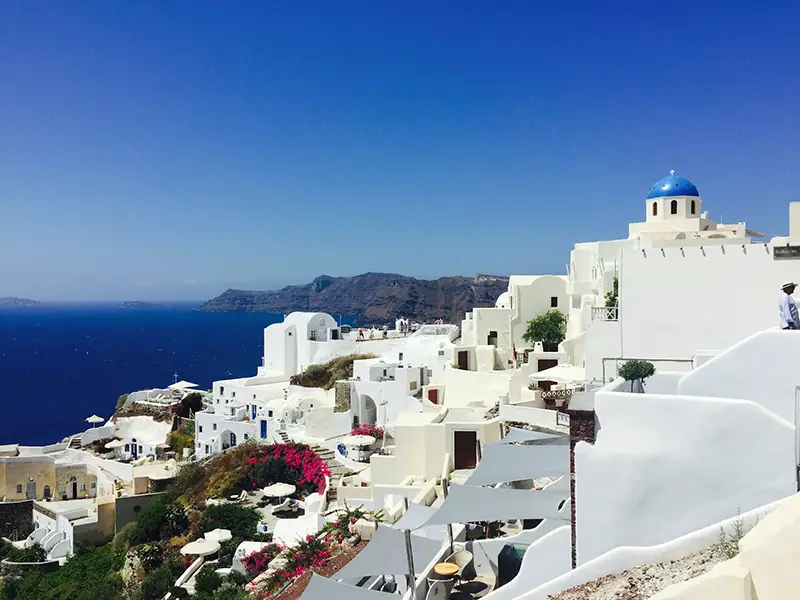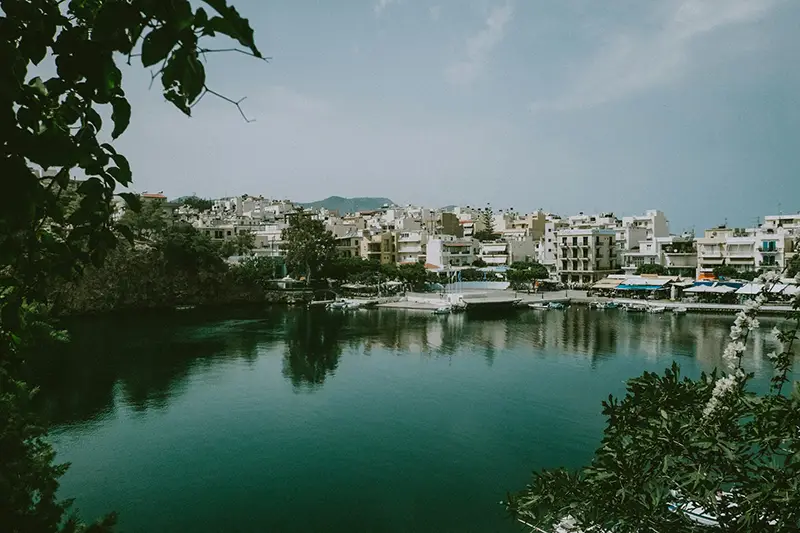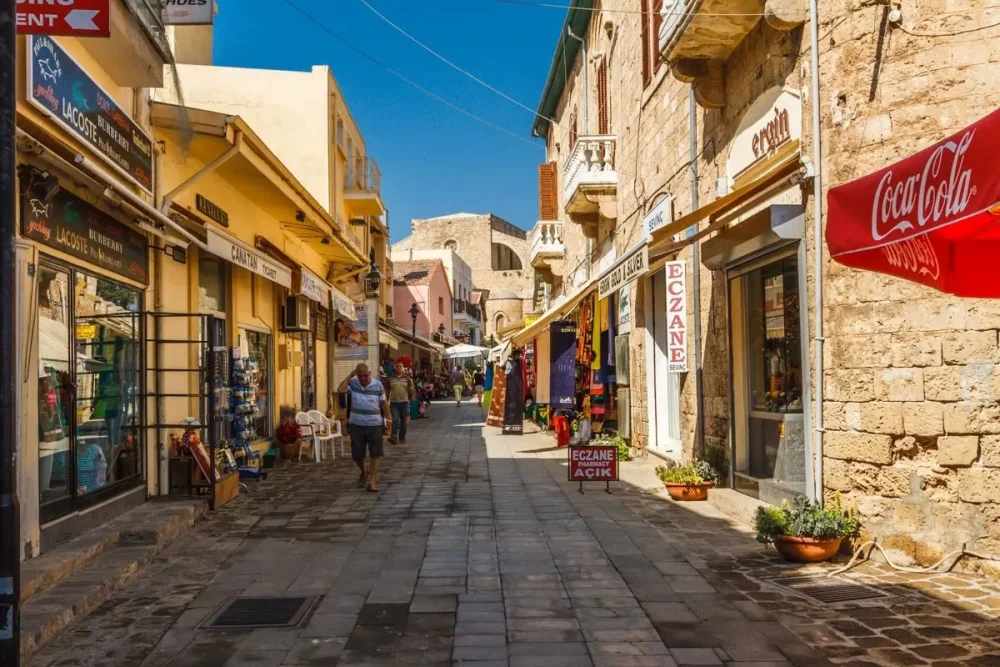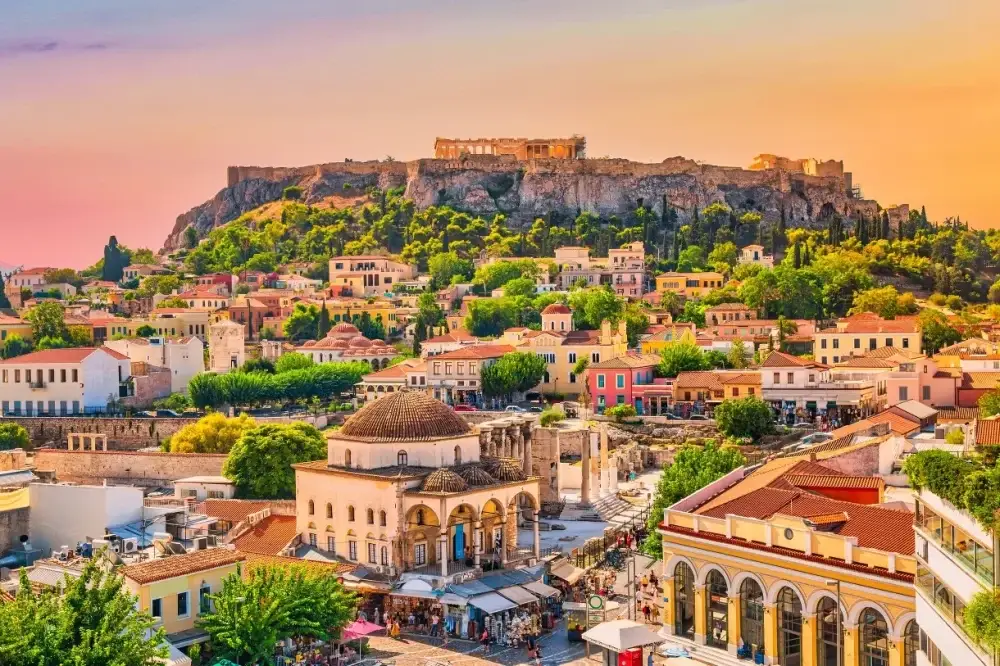A home by the sea is not just a purchase, it is an investment in quality of life. Greece with its warm climate, clean beaches and stunning views attracts those who dream of tranquillity, comfort and beauty. Where to buy a flat in Greece by the sea and how to organise the whole process? In this article we will go through each step, from choosing a region to organising all the necessary documents.

Attica – proximity to the capital and the sea
Attica is a great place for those who want to live on the coast but not lose access to metropolitan life. There are prestigious coastal neighbourhoods such as Glyfada, Vouliagmeni and Varkitsa, where clean beaches are combined with first-class infrastructure. The average cost per square metre is around 3500-5000 euros.
Attica has an international airport “Eleftherios Venizelos”, which makes frequent travelling comfortable and fast. Buy a flat in Greece by the sea here – not just prestigious, but also convenient in terms of infrastructure. There are top restaurants, shopping centres and elite schools nearby. Living in Attica is comfortable both for families with children, thanks to the many private kindergartens and schools, and for business people who want to be in the centre of events.
Crete is an island of opportunity and vibrant culture
Crete is a place with a unique flavour, where life is relaxed and vibrant. It is the largest island in Greece and offers accommodation to suit all tastes, from small flats on the coast to spacious villas. The average price per square metre ranges from 1500 to 3000 euros depending on location. Buying a house by the sea in Crete is also an opportunity for a stable income.
Tourism is actively developing here, the island attracts many tourists every year, and renting out accommodation can be a great source of profit. Developed infrastructure, abundance of historical sights – Knossos Palace, Arkadi Monastery – and picturesque landscapes make this island not only attractive for living, but also favourable for investment.
Santorini – luxury accommodation with unique views
 Santorini is an island that captivates at first sight with its views. Snow-white houses with blue domes against the azure sea create a unique image. Here you can buy a flat in Greece by the sea and get access to the most beautiful sunsets in the world, which can be seen from the caldera.
Santorini is an island that captivates at first sight with its views. Snow-white houses with blue domes against the azure sea create a unique image. Here you can buy a flat in Greece by the sea and get access to the most beautiful sunsets in the world, which can be seen from the caldera.
Property in Santorini is more expensive than the national average – from 4000 to 7000 euros per square metre, but this investment brings not only status, but also joy every day. The island offers many restaurants, designer boutiques and cosy cafes. Santorini is the choice of those who appreciate luxury, are not afraid to spend on real emotions and want to be in one of the most photogenic places on the planet.
Features:
- Spectacular views of the caldera and the Aegean Sea.
- An exclusive property that has remained in demand for many years.
- The opportunity to enjoy the best restaurants with traditional Greek cuisine and the best wines of the region.
The procedure: How to buy a flat in Greece by the sea
Buying a home involves several key steps, each of which is important for the successful completion of the transaction. It starts with choosing a property and a reliable agency. It is important to find a trustworthy agency to avoid hassles and hidden fees. After choosing the object, a preliminary agreement is signed, which fixes the price and terms of the deal. The agreement protects the interests of the parties and guarantees that the property will be secured while the legal due diligence takes place.
It is necessary to collect documents to buy a property in Greece, among them:
- Passport and Tax Identification Number (TIN).
- Bank statements proving the financial solvency of the buyer.
- Certificate of absence of debts and legality of income.
It is impossible to buy a flat in Greece by the sea without these documents. Each document must be prepared in advance to avoid delays in the process of registration of the transaction. All originals must be translated into Greek and notarised. After the preparation of the package follows the registration of ownership rights in the Land Registry, where all changes and legal rights to the property are recorded. This is the final stage after which the person becomes the full owner.
Prices of flats in Greece by the sea: what to expect?
The cost varies depending on the region chosen. For example, in the prestigious areas of Attica the price per square metre can reach 4000-5000 euros, while in Crete or in remote parts of the country – from 1500 to 3000 euros per square metre. The possibility to take out a mortgage on property in Greece makes the purchase more affordable. Greek banks offer mortgages to foreigners and the rates vary from 3 to 5%, depending on the terms of the bank and the financial history of the buyer:
- Down payment – typically 20-30% of the home’s value.
- Mortgage rate – can vary depending on the term and bank, starting at 3%.
- The repayment period is up to 30 years.
Taxes and additional costs when buying a property in Greece
You need to consider not only the cost of the property, but also the additional costs:
- Property purchase tax – is 3-5% of the value of the property depending on its category.
- Notary services – the cost of which is about 1-1.5% of the total amount of the transaction.
- Legal services – lawyer’s fee for checking the legal cleanliness of the object (about 1%).
- Registration fees – at the Land Registry, which are approximately 0.5% of the value.
All of these costs can add up to 10% of the total cost of the property, so it’s important to consider them when planning your budget.
Why it is favourable to buy a flat by the sea in Greece: How to get a residence permit
Residence permits in Greece for the purchase of real estate are available to those who purchase a property with a value of 250,000 euros or more. The residence permit entitles the holder to travel freely within the Schengen area, to use the services of the local health care system and educational institutions.
Advantages of a residence permit:

- Freedom of movement – the possibility of visa-free entry to Schengen countries.
- Health and education – access to public and private facilities.
- Five-year term – renewable if the property remains in the owner’s possession.
Conclusion
 Prestigious Attica, vibrant Crete or romantic Santorini, each location offers unique opportunities for those looking to invest in their future. Buying a flat in Greece by the sea is not just about buying a property, it is about making the dream of living by the azure coast a reality.
Prestigious Attica, vibrant Crete or romantic Santorini, each location offers unique opportunities for those looking to invest in their future. Buying a flat in Greece by the sea is not just about buying a property, it is about making the dream of living by the azure coast a reality.
 en
en  de
de  ar
ar  es
es  nl
nl  hi
hi  fr
fr  it
it  pt
pt  el
el 









